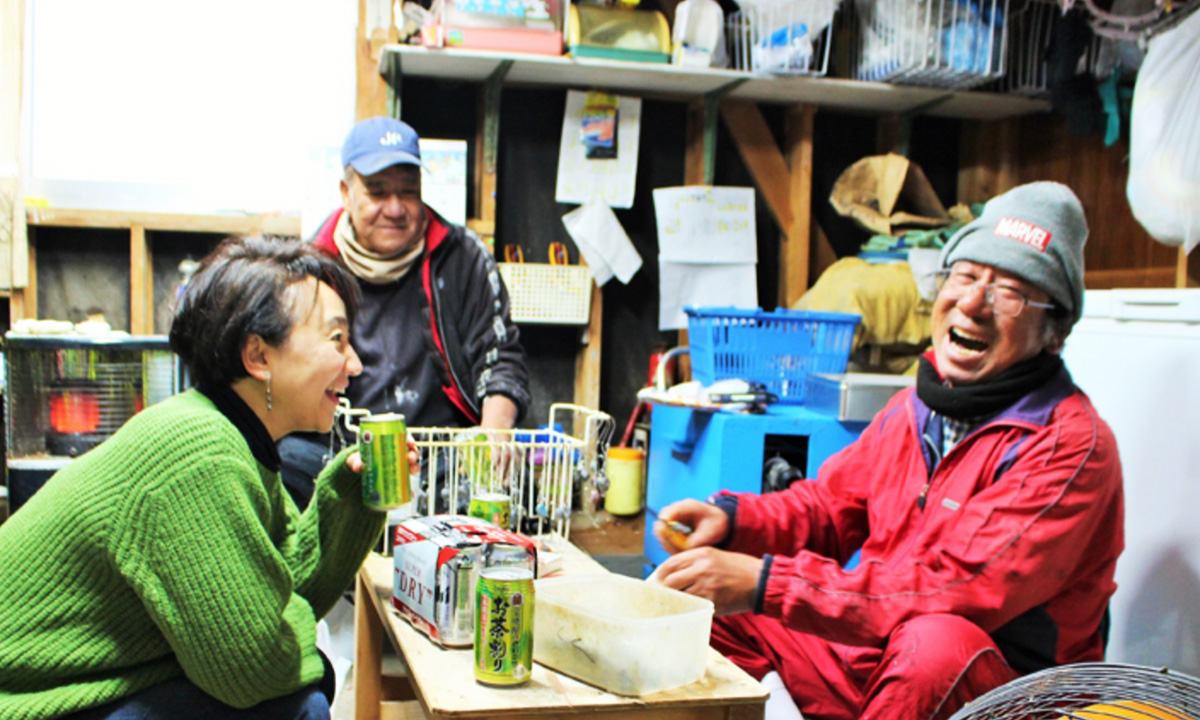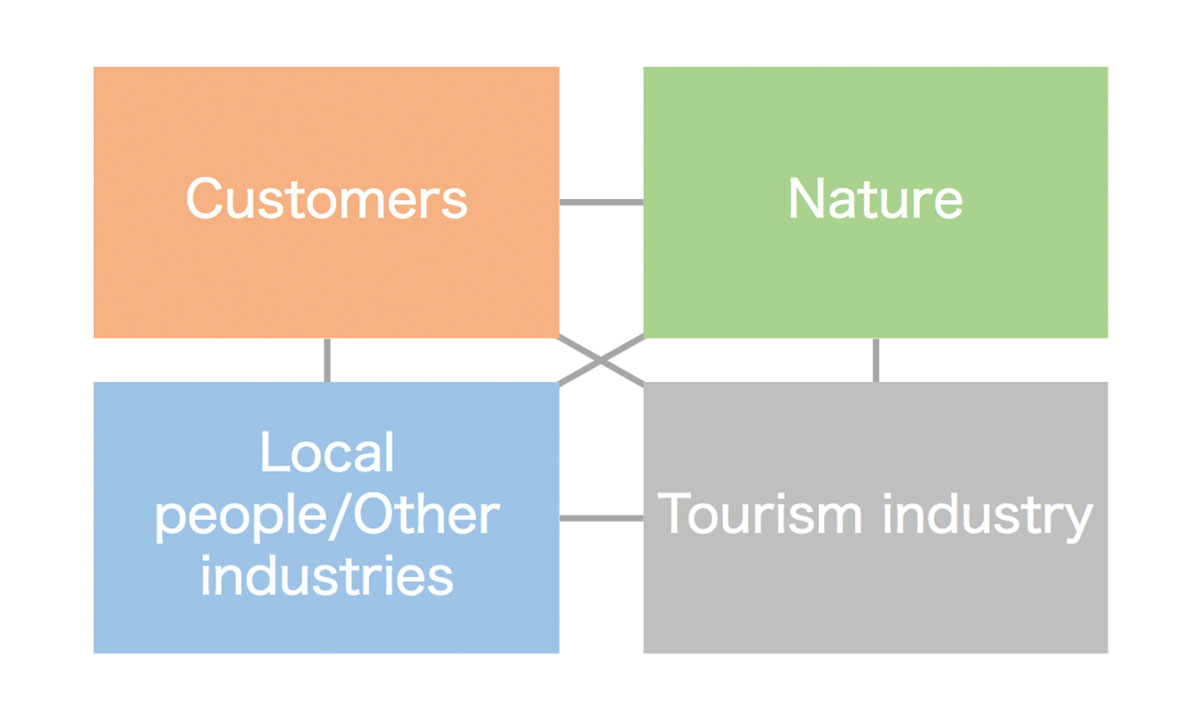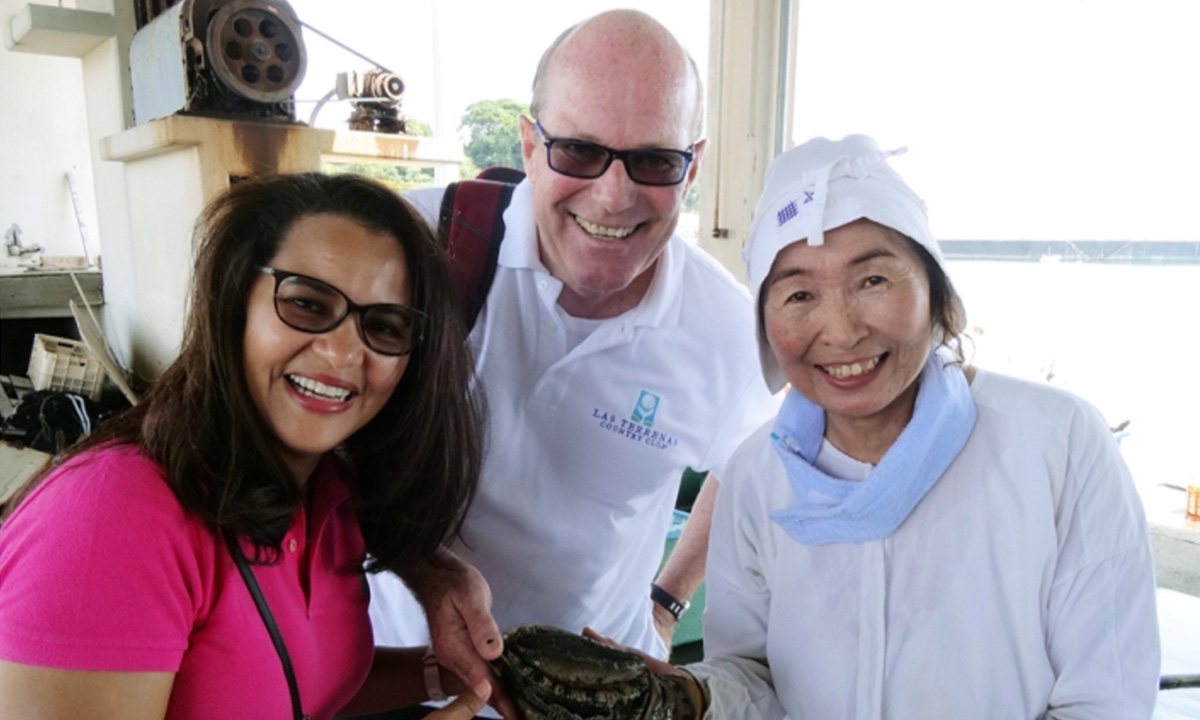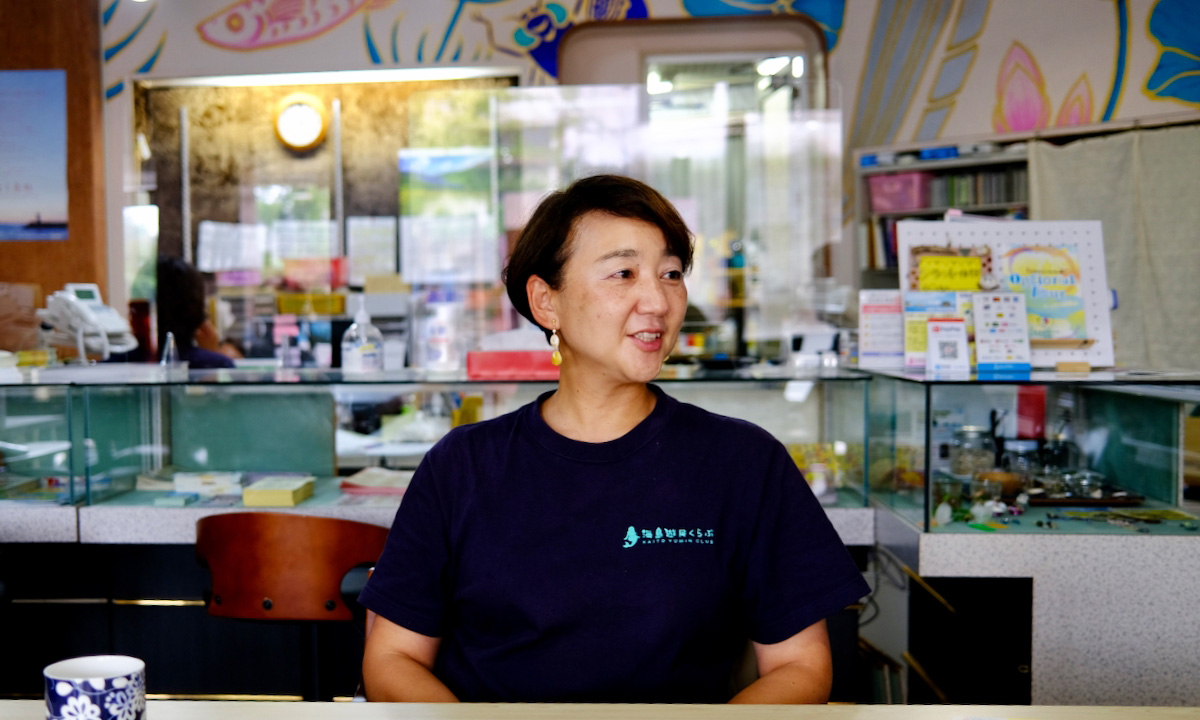|
Centrip Editorial Board
Interview with Ms. Kiku Ezaki, President of Kaito Yumin Club: SDGs and Toba Tourism Guide

Ms. Kiku Ezaki is the head of Kaito Yumin Club and the proprietor of Umizuki, a Japanese inn in Toba, and has served many inbound travelers as a guide with the pioneering philosophy of "Four-Party-Friendly" in line with the SDGs. The Centrip editorial team interviewed Ms. Ezaki to discover what she thinks about inbound travel in the post-Covid era.
The following is from our interview with Ms. Esaki and has been rearranged by the editorial staff.
About the Kaito Yumin Club
The Kaito Yumin Club began in 2001 and has actively accepted foreign tourists since the beginning; as of 2019, the percentage of foreign customers is about 10%.
Tourists come from a variety of nationalities, and while many are affluent since they can travel to Japan, they are not necessarily targeted for being wealthy. An increasing number of overseas travel agencies are selling a combination of lodging and content, and many people book through travel agencies and stay overnight in Toba to experience the Kaito Yumin Club's content.
In Toba, there are four inhabited islands, no traffic lights, and cars do not play a major role in daily life. Combined this has created a unique cultural area in Japan. Visiting the islands, touring the markets together, visiting the fishermen's huts, and talking with the fishermen are popular among inbound tourists. The attraction of the tour comes from gaining access to facilities that are not made for tourism and are not normally open to the public.
 Experiencing a Real Fisherman's Hut
Experiencing a Real Fisherman's Hut
This kind of tour is made possible by companies giving full consideration to their relationship with the local community and nature and doesn't artificially create content to fit a customers' desires but rather shows them how to accept nature and leave it as untouched as possible. This is the kind of guided tour that the Kaito Yumin Club continues to explore.
The Purpose of the Kaito Yumin Club
 Kaito Yumin Club's Philosophy
Kaito Yumin Club's Philosophy
The idea behind the Kaito Yumin Club is to be "Four-Party-Friendly," which means customers, nature, local people, and the tourism industry. We do not create any negative effects on any of the four parties needed in the region. Whenever we come up with a new tour plan, we always consider whether it will be beneficial to all four parties.
This idea of SDGs has a deep connection with the area of Toba. The Ise-Shima National Park is 96% public land, making it the most heavily used national park in Japan. In other words, the area has been preserved by the people who live there. The concept behind Ise-Shima National Park is the interweaving of people's lives and nature, and Toba is an area where many things are interwoven. Even in the same section of the sea surface, there are different types of fishing depending on the season. Even among the fishermen, there is a lot of coordination. If you are going to do tourism there, you have to constantly adjust and coexist with the people and the nature that exists there. It is not enough that there are customers and tourism businesses. And so the idea of "Four-Party-Friendly" arose.
SDGs and Tourism
To recover in the post-Covid era, Japan needs to promote the appeal of regional tourism and the sustainable efforts made in each region.
These days it is fashionable to talk about SDGs, but when you get down to it, they are not so simple. To begin with, the SDGs are a means to solve social problems. A single issue involves many things. That is why solutions require a multifaceted perspective and flexible goals. As soon as it is divided into categories, we tend to think of it as "what number should I set as my goal," but that is not the essence.
Well-informed guides must explain the context of their tours to inbound visitors to showcase the sustainable efforts of Japan and its various regions. If the culture of the Ama (female pearl divers), the pride of Toba, is communicated without cultural background and context, it will only be seen as "Japan is overexploiting its natural resources."
 Foreign tourists enjoying a diver's hut experience.
Foreign tourists enjoying a diver's hut experience.
Take the fishing in Toba, for example. The octopus pots used in octopus fishing do not have lids. The octopus will escape if it wants to, so the fishermen never put a lid on the octopus pot. This wisdom handed down from our ancestors prevents overfishing. If an octopus wants to escape, it will.
On the other hand, in the case of the Atlantic countries, they have made a series of technological innovations to increase the catch more efficiently and rationally, and have pursued techniques to maximize the catch. On top of that, the amount of fish caught is regulated by strict rules to prevent overfishing. The underlying philosophy and cultural backgrounds are completely different. It is necessary for tour guides who explain their areas to visitors to explain the area's attractiveness in this cultural context.
Post-Covid, Travel, and the Role of Guides
 Ms. Esaki in an interview
Ms. Esaki in an interview
Japanese people and foreigners have different ways of dealing with the coronavirus. When Japan resumes accepting inbound travelers in the post-Covid era, this discrepancy is likely to cause friction among foreigners.
In the days before the pandemic, only the ripple effect of inbound tourism on the local economy attracted attention. Local communities were able to work together toward the goal of increasing the number of foreign tourists. After Corona, the evaluation of inbound tourism will change drastically depending on one's position. People involved in the tourism industry must first rebuild the understanding of the local community to accept inbound visitors. The "Four-Party-Friendly" philosophy of the Kaito Yumin Club will take on great significance.
What is the purpose of travel in the first place? I think the value of travel is to encounter cultures different from our own and promote understanding. By experiencing an unfamiliar culture and the values it holds, we come to love the area. After that, friendship blossoms between countries, leading to world peace. I want to reiterate that this is not just a matter of traveling to turn the economy around, but that travel has this aspect.
A guide's true role is to promote mutual understanding. Mutual understanding of our cultural background and our clients helps us see the meaning of things that are not immediately apparent or understandable.
July 7th, 2021
Interview by Ryo Nagasaki
Click here to get the latest information on Central Japan.Centrip Japan - Nagoya and Chubu Information

